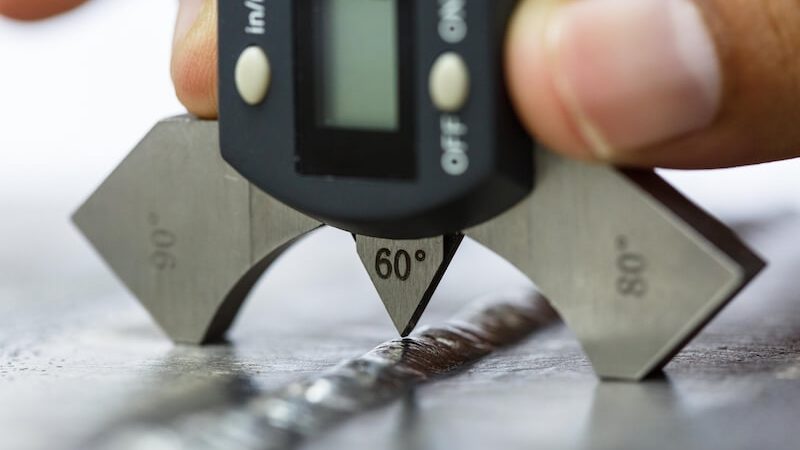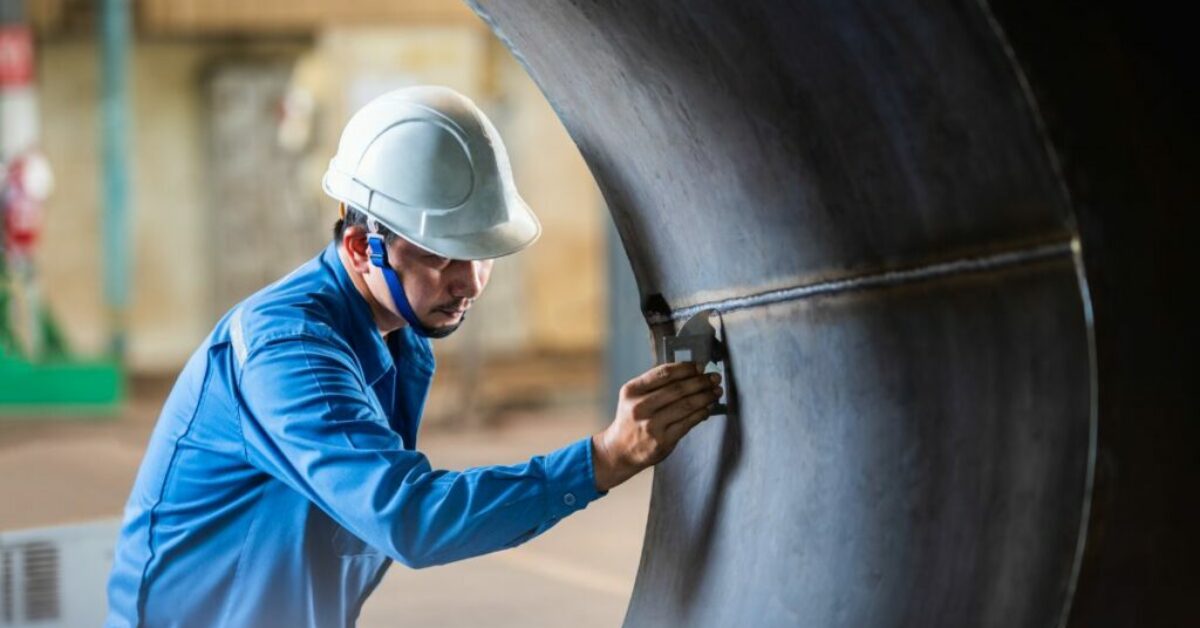The Influence of Strenuous Welding Evaluation on Industry Criteria: Promoting Safety, Integrity, and Conformity Throughout Different Industries
The duty of extensive welding examination is progressively recognized as a crucial part in improving industry standards, where reliability, conformity, and safety and security take priority across varied markets. By guaranteeing conformity to established standards, such as those stated by AWS and ISO, these assessments not just mitigate dangers yet likewise cultivate a sense of responsibility among professionals. As markets evolve and face new obstacles, the implications of these practices may extend beyond mere compliance. What improvements might we expect in welding techniques as the need for top quality and safety and security magnifies?
Importance of Welding Examinations
Recognizing the critical duty of welding evaluations in maintaining top quality and security criteria, market professionals focus on these assessments to make certain structural honesty. Welding evaluations offer as a vital checkpoint in the manufacture procedure, identifying flaws that could endanger the longevity and security of bonded structures. By methodically evaluating welds, assessors can spot issues such as incomplete infiltration, porosity, and cracks, which may not be noticeable to the naked eye.
The relevance of these assessments expands past mere compliance; they are important for guarding lives and securing financial investments. In crucial markets such as aerospace, production, and building and construction, a solitary faulty weld can lead to disastrous failings, causing both economic loss and human casualties. Therefore, executing strenuous examination protocols alleviates these dangers and improves general project dependability.
In addition, regular welding inspections cultivate a culture of high quality throughout companies, urging welders to abide by finest practices and preserve high requirements in their work. This dedication to high quality not just boosts functional effectiveness yet additionally strengthens the track record of companies within their respective sectors. Hence, welding inspections are essential in promoting safety, integrity, and compliance throughout numerous sectors.
Trick Industry Requirements and Laws
The framework of welding inspections is underpinned by a durable collection of industry criteria and guidelines that govern practices across numerous industries. Trick establishments, such as the American Welding Society (AWS) and the International Company for Standardization (ISO), develop guidelines that make certain top quality and security in welding operations. For circumstances, AWS D1.1 describes essential requirements for welding steel frameworks, while ISO 3834 specifies high quality requirements for blend welding.
Along with these certain standards, sector policies like the American National Specification Institute (ANSI) and Occupational Safety And Security and Wellness Management (OSHA) mandates even more boost conformity by establishing safety protocols and operational best practices. These guidelines are critical in industries such as aerospace, manufacturing, and construction, where welding integrity is critical.
Moreover, sector-specific standards, such as those from the American Society of Mechanical Engineers (ASME) for pressure vessels, provide additional layers of scrutiny to ensure that welds fulfill rigorous safety and security and efficiency requirements. Adherence to these requirements not only helps with regulative compliance yet likewise promotes a culture of quality and reliability throughout the welding industry, inevitably securing public welfare and boosting functional effectiveness.

Advantages of Compliance and Reliability
Continually adhering to industry criteria and laws in welding assessments yields considerable advantages, boosting overall integrity and performance. The foremost advantage is the assurance of top quality in welded joints, which directly adds to pop over to this site the safety of frameworks and devices. Compliance with established requirements minimizes the danger of failure and devastating events, therefore safeguarding both human life and valuable possessions.
Moreover, organizations that focus on extensive welding inspections promote a society of liability and expertise. This dedication not only bolsters the reputation of the company but likewise infuses confidence in stakeholders and customers relating website here to the stability of services and products. Trustworthy welding processes cause lowered costs related to rework, repairs, and prospective lawful liabilities coming from below average handiwork.
Additionally, preserving compliance with market criteria helps with smoother governing interactions, as organizations can easily show adherence to necessary protocols (Welding Inspection Gilbert Arizona). This aggressive approach can lead to useful collaborations and possibilities within the sector, in addition to access to new markets
Difficulties in Welding Examination
Browsing the complexities of welding evaluation provides a myriad of challenges that can impede compliance with market criteria. The lack of standardized training for inspectors can result in varied analyses of inspection standards, which may compromise security and integrity.
One more challenge hinges on the availability of innovative evaluation devices - Welding Inspection Gilbert Arizona. While innovations such as ultrasonic testing and radiography can improve detection capabilities, their implementation might be restricted by price or schedule, especially in smaller sized operations. This variation can result in a dependence on less efficient evaluation methods, enhancing the danger of unnoticed imperfections
Furthermore, the busy nature of modern-day manufacturing often stress examiners to prioritize speed over thoroughness, potentially ignoring critical issues. Lastly, regulative compliance can be discouraging because of the developing nature of industry requirements, leaving organizations battling to stay up to date with the current requirements. These obstacles require continual enhancement in examination methods to guarantee the integrity of welded frameworks across different industries.
Future Trends in Welding Practices
Arising innovations and developing methods are readied to change welding methods in the coming years. Improvements try this site in automation, such as robotic welding systems, are gaining grip, improving precision and effectiveness while decreasing human error. These systems will certainly not just quicken production however additionally help with constant quality assurance, resolving several of the difficulties faced in manual welding.
Additionally, the combination of expert system (AI) and artificial intelligence right into welding processes is positioned to revolutionize inspection and monitoring. Real-time information analytics will certainly allow predictive upkeep, enabling proactive treatments that decrease downtime and boost security. Increased truth (AR) and online truth (VR) technologies are becoming instrumental in training welders, giving immersive experiences that improve ability growth without the risks connected with conventional approaches.
Sustainability is also a key trend, as markets seek greener methods. The adoption of green materials and techniques, together with energy-efficient equipment, will likely end up being basic. As sectors adapt to these changes, the emphasis will move towards better conformity with security and ecological regulations, guaranteeing that welding methods not only satisfy existing criteria but likewise lead the means for a safer and more sustainable future.

Final Thought
Finally, extensive welding inspections significantly enhance sector standards by guaranteeing security, dependability, and conformity throughout various sectors. By systematically determining issues and sticking to developed standards, these examinations minimize risks connected with structural failures. The promotion of liability amongst welders brings about better outcomes, fostering trust within areas. As sectors proceed to focus on functional honesty, the significance of detailed examinations will only increase, inevitably benefiting services and society at large.
The function of rigorous welding evaluation is increasingly recognized as an important part in improving industry requirements, where conformity, integrity, and security take priority throughout varied fields. Thus, welding evaluations are essential in advertising safety and security, integrity, and conformity throughout different markets.
Key establishments, such as the American Welding Society (AWS) and the International Company for Standardization (ISO), establish guidelines that guarantee top quality and security in welding procedures. AWS D1.1 describes essential needs for welding steel frameworks, while ISO 3834 defines quality needs for blend welding.
In verdict, rigorous welding inspections dramatically boost sector criteria by guaranteeing safety and security, reliability, and conformity throughout numerous markets.